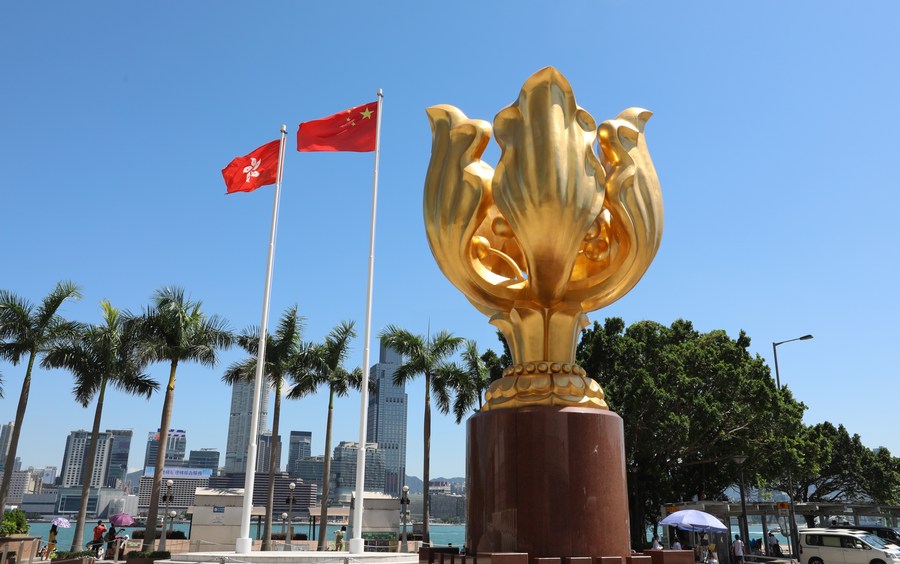National Security Legislation: No Violation of HK People’s Legitimate Rights, Interests

The failure to enact this article over the past two decades has created a loophole in Hong Kong’s legal system. It is both necessary and imperative that efforts be made at the State level to establish and improve the legal system and enforcement mechanisms for the HKSAR to safeguard national security.
Article 23 of the Hong Kong Basic Law stipulates that the Hong Kong Special Administrative Region (HKSAR) shall enact laws on its own to prohibit any act which is harmful to national security. The failure to enact this article over the past two decades has created a loophole in Hong Kong’s legal system, jeopardizing the legitimate rights and interests of the Hong Kong people.
It is both necessary and imperative that efforts be made at the State level to establish and improve the legal system and enforcement mechanisms for the HKSAR to safeguard national security, so as to better protect its people’s legitimate rights and interests.
The acts by violent radicals have greatly undermined Hong Kong residents’ sense of security, as rioters disrupted road traffic, vandalized stores and even attacked passers-by.
For example, a 57-year-old man was brutally beaten, before being doused in flammable liquid and set on fire by a rioter in the Ma On Shan area last November, simply for holding different political views.
Violence has also seriously affected economic development and people’s livelihoods in Hong Kong. In the first half of 2019, the number of arrivals to the city increased by 13.9%, reaching a record high of 34.87 million. However, this figure plunged to 21.04 million in the second half of the year due to the social unrest and violence.

Stores, hotels, restaurants and other businesses that rely on tourism took a hard hit, leading to a sharp rise in unemployment. Prior to the first half of 2019, unemployment in Hong Kong had remained stable at 2.8%, but rose to 3.3% in the second half of the year – its highest rate since the third quarter of 2017.
The grave situation in Hong Kong has made closing the loophole in the city’s legal system and more effectively curbing the violence by radical rioters according to the law even more urgent, in order to maintain prosperity and stability as well as safeguard the well-being of Hong Kong residents.
The national security legislation will strictly follow and reflect generally recognized principles of rule of law, such as procedural justice, legally prescribed punishments for specified crimes, and the presumption of innocence.
The legislation will not affect the freedom of speech, publication or assembly, among others, enjoyed by Hong Kong residents in accordance with the Basic Law. Their ways of production and life as well as private property rights will continue to be strictly protected by law.
It is the acts of radical rioters that are violating the legitimate rights and freedoms of the vast majority of Hong Kong residents. The rioters have manipulated public opinion by intimidating people into hiding their real views.
The national security legislation aims to punish the small number of criminals, and establish more sound mechanisms for protecting the legitimate rights and freedoms of Hong Kong residents.
Rights and freedoms should be exercised within the scope of the law. It is legal to provide constructive criticism of government. However, Chinese laws, including the new national security legislation, forbid any behavior or activity that amounts to secession, subversion of State power, or the orchestration and performance of terrorist activities.
Wu Libin is an associate professor at the Institute of Guangdong, Hong Kong and Macao Development Studies at Sun Yat-sen University.
 Facebook
Facebook
 Twitter
Twitter
 Linkedin
Linkedin
 Google +
Google +










